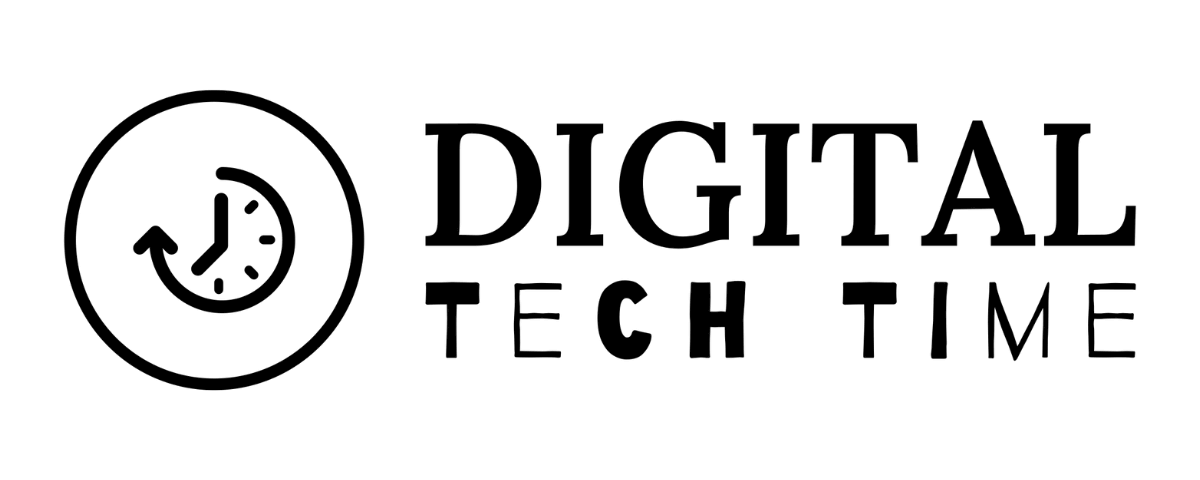50 Secret Google Ranking Factors for 2023: Boost SEO Success
Search Engine Optimization (SEO) is influenced by a multitude of factors. Addressing these elements effectively serves as a strong indicator of SEO success. Google considers nearly 200 key factors that have a direct impact on SEO performance. Adhering to these Google ranking criteria is highly beneficial.
To become a successful blogger, achieving a high SEO ranking is crucial. This is because the success of a blog is largely determined by the amount of traffic it receives. Without effective SEO, attracting a significant audience is challenging.
Google employs a variety of algorithms in its ranking system, aiding in the identification of genuine content, backlinks, and other relevant factors. In this article, we will explore 50 Secret Google Ranking Factors for 2023 to accelerate your path to success.
Understanding Google Ranking
Ever wondered how Google decides which websites to show first when you search for something? It’s not magic; it’s all about Google’s ranking algorithm. This algorithm is a complex set of rules that Google uses to determine the relevance and quality of billions of web pages. Understanding these rules is crucial for anyone looking to improve their website’s visibility on the web.
Reach out in-depth Understanding Google Ranking
Google Algorithm
How Google’s Algorithm Works
Google’s algorithm is a closely guarded secret, but SEO experts have managed to identify several factors that influence rankings. The algorithm uses over 200 factors to determine the relevance and quality of a website. These factors range from the age of your domain to the speed of your website. It’s like a recipe, where each ingredient contributes to the final dish and your website’s ranking.
Importance of Algorithm Updates
Google frequently updates its algorithm to provide the best search results. These updates can be minor tweaks or major overhauls. Staying updated with these changes is crucial for maintaining a high ranking. Failing to adapt can result in your website falling into the abyss of Google’s search results.
50 Secret Google Ranking Factors 2023
Domain Age
The age of your domain can play a role in your website’s ranking. Older domains are often seen as more trustworthy and reliable. However, this doesn’t mean new websites can’t rank well. It just means that older websites have a slight advantage because they’ve had more time to build credibility.
Who is Record
The “Whois” record of a domain provides information about the owner. Google checks this information to gauge the legitimacy of a website. Domains with hidden or anonymous “Whois” information can sometimes be seen as less trustworthy, affecting their ranking.
Local TLD
Top-level domains (TLDs) like .com or .org are generic, but country-specific TLDs like .us, .uk, or .ca can help you rank better in those particular countries. This is especially useful for local businesses targeting local customers.
Server Speed
The speed of your server can significantly impact your website’s user experience, and Google takes this into account when ranking websites. A faster server can lead to faster load times, which can improve your ranking.
Loading Speed
Google has explicitly stated that site speed is a ranking factor. The faster your site loads, the better. Slow-loading websites provide a poor user experience and are penalized by lower rankings.
Using HTTPS
Security is a top priority for Google, and that extends to the websites it ranks. Websites that use HTTPS are given a slight ranking boost as they are considered more secure. HTTPS encrypts the data between the user and the server, providing a more secure user experience.
Responsive Design
With the increasing use of mobile devices for internet browsing, having a responsive design is no longer optional. Google has moved to mobile-first indexing, which means it primarily uses the mobile version of a website for ranking and indexing. A responsive design ensures that your website looks good and functions well on all devices, which is crucial for ranking.
Keyword in Title
The title tag is one of the most important on-page SEO factors. Including your target keyword in the title tag not only tells search engines what your page is about but also influences the user’s decision to click on your page. A well-optimized title can significantly improve your ranking.
Keyword in Description
The meta description is the snippet of text that appears below the title in search results. While it’s not a direct ranking factor, a compelling meta description can improve click-through rates, which in turn can positively impact your ranking. Including the target keyword makes it more relevant to the search query.
Keyword in Heading Tags
Heading tags (H1, H2, H3, etc.) help structure your content and make it easier for both search engines and users to navigate your page. Including keywords in your heading tags can emphasize the importance of those terms, but don’t overdo it. Keyword stuffing can lead to penalties.
Length of Content
The length of your content can be a ranking factor. Generally, longer, more comprehensive articles tend to rank higher. This is because longer articles are likely to contain more information, be more detailed, and cover a topic more comprehensively, making them more useful to the reader.
Keyword Density
Keyword density refers to the frequency with which a keyword appears in your content. While there’s no hard and fast rule for the “ideal” keyword density, it’s important to use your target keywords naturally and avoid keyword stuffing. Excessive repetition can make your content feel spammy and can lead to penalties.
Table of Content
A table of contents can improve the user experience by making it easier to navigate long articles. It can also help search engines understand the structure of your content. Some SEO experts believe that a table of contents can also create additional internal links, which can be beneficial for SEO.
Using LSI Keywords
Latent Semantic Indexing (LSI) keywords are terms and phrases that are related to your target keyword. They help search engines understand the context and relevance of your content. Incorporating LSI keywords can improve the depth of your content and potentially improve your ranking.
Responsiveness
User experience is a significant factor in Google’s ranking algorithm. Responsiveness here refers to how quickly your website adapts to user interactions, such as clicking a button or filling out a form. A more responsive site provides a better user experience, which can positively impact your ranking.
Updated Content
Freshness matters. Search engines love updated content because it’s more likely to be relevant and useful to the user. Regularly updating your content, especially for topics that are subject to change, can give you a ranking boost.
Duplicate Content
Duplicate content is a big no-no in the world of SEO. Google aims to provide a diverse range of information, and having the same content repeated across different pages can result in a penalty. Always strive for unique content to improve your ranking.
Optimize Images
Images can be a hidden culprit slowing down your site. Large image files take longer to load, negatively impacting user experience and your ranking. Always optimize images before uploading them to your site. Use descriptive file names and alt text for images to improve accessibility and SEO.
Keywords in the First Paragraph
Including your target keyword in the first paragraph of your content can give you a slight SEO advantage. It helps search engines quickly understand the main topic of your page.
Spelling Mistakes
Believe it or not, poor grammar and spelling can negatively impact your site’s ranking. It diminishes the user’s perception of your site’s credibility and could result in lower rankings. Always proofread your content before publishing.
Outbound Links
Outbound links are links that point to external websites. Linking to high-quality, authoritative sites can actually boost your site’s credibility in the eyes of search engines. However, excessive outbound linking can dilute the focus of your page, so use them judiciously.
Multimedia Usage
Text is essential, but multimedia elements like images, videos, and infographics can significantly enhance user engagement. A well-placed video or image can break up long sections of text, making your content more accessible and engaging, which is a plus in Google’s book.
Broken Links Solution
Broken links can harm your site’s SEO and user experience. They lead to dead ends and can frustrate users. Regularly check your website for broken links and fix them to improve your site’s SEO.
Deep Internal Linking
Internal links are links that go to other parts of the same website. Deep linking refers to linking to pages that are not just your homepage or main category pages but deeper sections of your site. This helps distribute page authority throughout your site and improves site navigation.
Easy Understandable Article
Clarity is key when it comes to content. Google’s algorithm is increasingly focusing on user experience, and a part of that is how easily understandable your content is. Avoid jargon and complex sentences. The easier your content is to read, the better it will rank.
Length of URL
The length of your URL can also be a ranking factor. Shorter URLs are easier to read and remember, which can lead to higher click-through rates. Additionally, a concise URL gives a clear idea of the page’s content, helping search engines to better understand it.
Relevant Category
Categorizing your content appropriately can improve its ranking. It helps search engines understand the context and relevance of your content, making it easier for them to index it appropriately.
Breadcrumbs
Breadcrumbs are navigational aids that appear at the top of your web pages. They help users understand their location within your site and how to navigate back to the homepage. This improves user experience and can positively impact your site’s SEO.
Keyword in URL
Including your target keyword in the URL can be an additional ranking factor. It not only helps search engines understand the content of the page but also makes the URL more user-friendly.
Bullets and Numbers
Lists, bullets, and numbers make your content easier to read. They break down information into digestible chunks and provide a visual break for the reader, improving user experience and, consequently, your ranking.
Important Pages
Highlighting important pages on your website, such as the “Contact Us” or “About Us” pages, can improve user experience and SEO. Make these pages easily accessible through clear navigation menus or internal links.
Schema Markup
Schema markup is a code that you put on your website to help search engines provide more informative results for users. It can help search engines understand the type of content on your page, be it articles, reviews, or events, and can improve your site’s visibility in search results.
Google Search Console and Google Analytics
These are essential tools for anyone serious about SEO. Google Search Console helps you monitor your website’s presence in Google search results, while Google Analytics provides detailed statistics and analytics of web traffic. Both are invaluable for understanding and improving your website’s SEO performance.
Backlink to Root Domain
Backlinks, or inbound links, are a significant ranking factor. Quality backlinks to your root domain can significantly boost your overall site authority and ranking. However, the emphasis is on “quality.” Links from reputable, high-authority sites are far more valuable than links from low-quality sites.
Backlink to Targeted URL
While backlinks to your root domain are important, don’t underestimate the power of page-specific backlinks. These are links that point directly to a targeted URL on your website, usually a blog post or an inner page. These can improve the ranking of specific pages and are often easier to acquire than domain-level backlinks.
Anchor Text Density
Anchor text is the clickable text in a hyperlink. Search engines use anchor text to understand the content of the page you’re linking to. However, using the same anchor text repeatedly can be seen as spammy. A natural mix of anchor text types is recommended for the best SEO results.
Competitors Link
Keeping an eye on your competitors is crucial in SEO. Tools like Ahrefs or SEMrush can help you analyze the backlink profile of your competitors. This can provide valuable insights into potential backlinking opportunities for your own site.
Nofollow Links
Not all backlinks are created equal. “Nofollow” links tell search engines not to follow the link and pass authority from one page to another. While they may not contribute to your site’s authority, they are still valuable for traffic and can help diversify your backlink profile.
Guest Post
Guest posting is a strategy where you write articles for other websites in your industry. In return, you usually get a backlink to your site. This is an excellent way to build your site’s authority and gain new audiences.
Proper 301 Redirect
A 301 redirect is a permanent redirect from one URL to another. It’s essential for maintaining the link equity when you’re moving content from one URL to another or consolidating multiple pages into one. Improper redirects can result in loss of traffic and rankings.
Relevant Backlink
The relevance of the linking site is another crucial factor. A backlink from a site that is closely related to your industry will carry more weight than a link from an unrelated site.
Authority Links
Links from authoritative sites, such as major news outlets or academic institutions, can significantly boost your site’s credibility and rankings. These are often hard to get but are incredibly valuable.
Natural Links
These are the best kind of links. Natural links are those that other website owners link to your content because they find it valuable. They are organic, not solicited, and are highly valued by search engines.
Read on for more related articles on Search Engine Optimization (SEO) to rank your website.
FAQs
How often does Google update its algorithm?
Google updates its algorithm frequently, sometimes daily. Major updates are usually announced and can significantly impact rankings.
Is HTTPS really necessary for ranking?
While not a major ranking factor, HTTPS does provide a slight boost as Google considers website security.
How do backlinks affect my ranking?
Quality backlinks can significantly improve your site’s authority and ranking. However, poor or spammy backlinks can have the opposite effect.
What is keyword density and why is it important?
Keyword density refers to how often a keyword appears in your content. While there’s no perfect density, it’s important to use keywords naturally and avoid stuffing.
How can I improve my site’s loading speed?
Compressing images, leveraging browser caching, and improving server response time are some ways to improve loading speed.
Conclusion
Understanding Google’s ranking factors is not just for SEO experts; it’s crucial for anyone who owns a website. With over 200 factors influencing how Google ranks a website, focusing on the most important ones can give you a competitive edge. From technical aspects like server speed and HTTPS to content-related factors like keyword density and relevance, each plays a unique role in your website’s ranking. By paying attention to these 50 Secret Google Ranking Factors 2023, you’re well on your way to SEO success.







